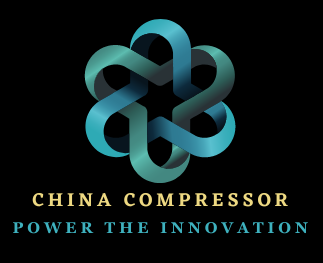Air compressors are extensively utilized in diverse industries and applications, ranging from pneumatic tools to painting and sandblasting tasks. Air compressors function by elevating the air pressure to compress it in a tank or reservoir. The compressed air can then be utilized to operate a variety of tools and machines. To ensure the quality and longevity of an air compressor system, filters play a crucial role in removing contaminants and protecting the compressor’s internal components. In this article, we will examine the various types of filters utilized in air compressor systems, their respective functions, and the advantages they offer.
1. Intake Filters
Intake filters are installed at the air compressor’s air intake point and are designed to remove contaminants, such as dust, dirt, and other debris, from the air before it enters the compressor. These filters are typically made of paper or foam and are designed to be disposable. They are designed to be replaced regularly in order to maintain the integrity and efficiency of the compressor.
2. Coalescing Filters
Coalescing filters are utilized to eliminate oil and water vapors from compressed air. These filters utilize a combination of mechanical and chemical processes to capture and bond with contaminants, enabling their easy removal from compressed air. Coalescing filters are typically made of specially treated fibers and are designed to be replaced when they become saturated.
3. Particulate Filters
Particulate filters are utilized to eliminate solid impurities from compressed air, such as rust, dirt, and other debris. These filters function by utilizing multiple layers to capture particles of varying sizes, thereby preventing them from entering the compressed air. Particulate filters are frequently used in combination with coalescing filters to achieve thorough filtration of compressed air.
4. Activated Carbon Filters
Activated carbon filters are utilized to remove odors and other gases from compressed air. These filters work by using activated carbon to adsorb contaminants, which adhere to the surface of the carbon. Activated carbon filters are frequently utilized in applications that necessitate pure and odor-free compressed air, such as in the food processing and pharmaceutical manufacturing industries.
Functions of Filters
1. Protect the compressor
Filters are essential components that protect the internal parts of the compressor from damage caused by contaminants and impurities. Without effective filters, the internal components of the compressor may become obstructed or corroded, resulting in premature failure and expensive repairs.
2. Improve Air Quality
Filters help ensure that compressed air is free from contaminants, providing clean and safe air for use in various applications. Clean and filtered compressed air is essential in industries that require high-quality air, such as food processing and pharmaceutical manufacturing.
3. Improve Efficiency
Filters help maintain the efficiency and performance of an air compressor system by removing contaminants that can cause blockages and reduce airflow. By ensuring that the compressed air is free of impurities, filters help optimize the compressor’s performance, reduce energy consumption, and save on operating costs.
Benefits of Filters
1. Improved Air Quality
Clean and filtered compressed air is essential for many applications, including painting, sandblasting, and pneumatic tools. By removing contaminants from the compressed air, filters help to ensure that the air is safe and free from impurities, reducing the risk of contamination and ensuring the highest quality output.
2. Reduced Downtime
Air compressors that lack filters are more susceptible to breakdowns and malfunctions due to contaminated air. By utilizing filters, air compressors can operate smoothly and efficiently, thereby reducing the risk of expensive downtime caused by repairs and maintenance.
3. Increased Longevity
Filters help protect the internal parts of the compressor from damage caused by contaminants and impurities. By removing these impurities, filters help to extend the life of the compressor, thereby reducing the need for costly repairs and replacements.
Conclusion
Air compressor filters play a critical role in ensuring the efficiency, longevity, and quality of an air compressor system. By removing contaminants from compressed air, filters help protect the internal parts of the compressor, improve air quality, and increase efficiency. Choosing the appropriate filters for your air compressor system is crucial to guarantee that the air is devoid of impurities and safe for use in diverse applications. By understanding the various types of filters that are available and their respective functions, you can choose the most appropriate filters for your air compressor system. This will ensure reliable and optimal performance for many years to come.









